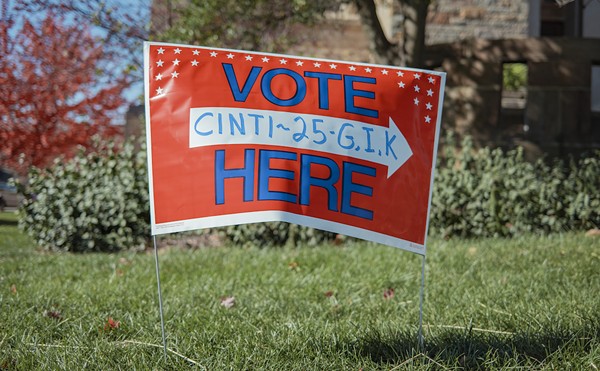I considered joining the U.S. National Guard as a teenager. Two military recruiters visited the Catholic elementary school I attended on the west side of Cincinnati.
School administrators herded us young boys into a room to listen to two men tell us we should consider enlisting. The images of national guardsmen stacking sandbags to battle against hurricanes and the words “Earn money for college” appealed to me. I thought I could serve my country while earning college tuition, especially since my parents wouldn’t be able to afford it.
But in high school, I learned the cold, harsh fact that national guardsmen are soldiers. Soldiers are trained to kill, and according to my Catholic education, killing is dead wrong.
For Catholic schools to instruct us to follow Jesus while granting admission to military recruiters made me wonder if these schools were content with being Americans first and Christians second.
After graduation, some of my friends prepared to join the Marines — statistically the most dangerous of all U.S. military professions.
Ryan hosted a farewell party the night before he was shipped to Louisville and then to Parris Island for the oath to commit to military service and basic training.
The U.S. invasion of Afghanistan had just begun. I feared that my friend would die, lose a limb or two, or return home with severe posttraumatic stress disorder after facing bullets and bombs and witnessing other people die in an unjust war.
What I thought could be my last words to him were, “Ryan, if you change your mind at any time, wherever you are, I will come and get you.”
My younger brother shook me awake two days later at about 5 a.m. Ryan had changed his mind and needed a ride from Louisville.
We picked him up on a sidewalk in downtown Louisville and brought him back to Cincinnati. A few years later he attended local anti-war rallies in New York City and Washington, D.C.
Another friend, Steve, almost completed basic training in 2005, but he left the Marine Corps. He’s a generous man but holds a short fuse when anyone is disrespectful toward his loved ones.
After a fellow recruit made a disrespectful joke about Steve’s girlfriend, his temper cracked and he attempted to crack the jokester’s skull with the butt of an assault rifle. He received a less-than-honorable discharge.
A few months later, I attended a farewell party for a soldier being shipped to Iraq. Mike was leaving for Germany the next morning for combat briefing, then to Iraq for combat. We wished him farewell as best we could.
As his guests starting leaving the party, each expressed their goodbyes with “Good luck,” “Be safe” and “We love you.”
Just before I left, I leaned over the kitchen counter and said, “Maybe you shouldn’t go.” He chuckled and said, “I’ve heard that a lot, but I made a commitment.”
Mike flew back to Texas six months later. During a patrol in Iraq, an improvised explosive device had knocked him unconscious and scalded nearly all his skin. A surgical specialist repaired the extreme burns across his body.
He returned to Cincinnati after his discharge to say he wanted to return to Iraq. He wanted to make sure the same damage wouldn’t happen to his fellow soldiers.
I bumped into Steve at a bar in early 2006. He delivered his usual jovial greeting: a rough kick in the shoe from behind.
The lighthearted conversation turned heavy when Steve told me about his brother Mitchell’s first tour of duty in Iraq. Steve said his brother struggled with suicidal thoughts after killing another person in combat.
I returned home one night from work in the spring of 2007 to find my father and sister talking to our family friends, Jake and his wife. Jake was an Iraq War veteran who was absent without leave. He avoided reporting back to his barracks to spend more time with his pregnant wife and because he disagreed with the war.
Jake was a sniper. He said his unit’s basic strategy in Iraq was to patrol the streets until someone attacked his convoy. He thought he was fighting people who simply wanted him to leave the country so they could fight each other over civil and religious divisions.
The military police eventually found Jake and warned that he must report for the final six months of his tour of duty in Iraq or face prison.
Jake reported back to Iraq. About four months later, he returned to the U.S. without one eye, and he nearly lost the other from an improvised explosive device that had struck his infantry-fighting vehicle.
The horror stories of combat veterans make me wonder how I would have returned to the U.S. if I joined the military during this decade.
Would I have returned with haunting images of human suffering? Would I have returned with pieces of me still on the battlefield or would I have returned at all?
I’m glad I never found out.
CONTACT JEREMY FLANNERY: [email protected]





